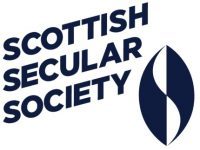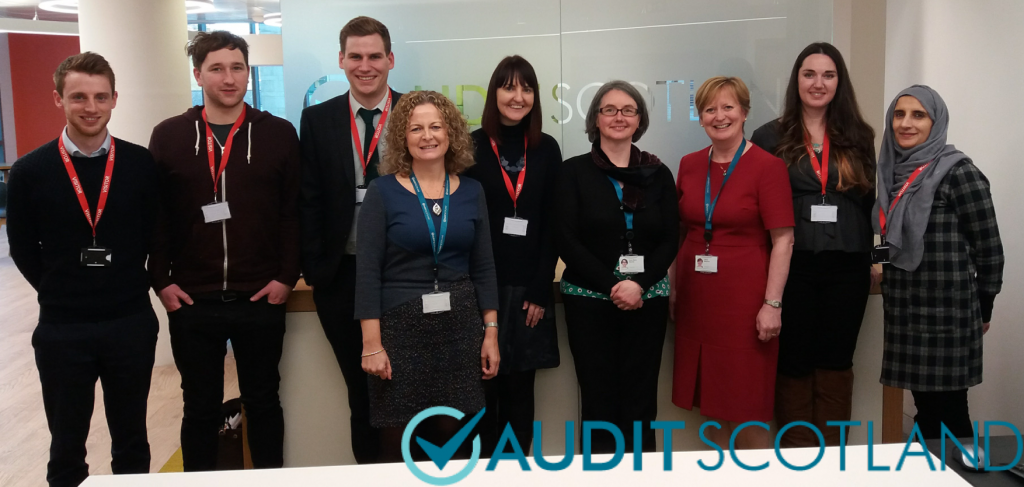Why does equalities and human rights matter to you and what should it mean for Audit Scotland?
Attendees: Megan Crawford, chair and Charlie Lynch, secretary
Authorship: Tom Dalton, Patrick Mackie, Megan Crawford, Charlie Lynch and John Duncan
Transcript of speech:
Good afternoon everyone. As the other speakers before us, Charlie and I want to thank Audit Scotland for hosting today’s Knowledge Café. We don’t have any slides to offer a visual presentation with our talk because our work, all too often, is not terribly visual. As a secular organisation, we work more behind the scenes. One on one with parents, students, community members, and then as advisors to larger organisations. We work to ensure people are allowed to practice their beliefs and religions, while also ensuring that no one is forced to practice a belief system they don’t agree with. That is our secular view for Scotland.
And with that said, today we are here to offer a brief perspective on why equalities and human rights matter, from a secular stance. One thing that has become clear in the years I’ve been with the SSS, is that HUMAN RIGHTS are difficult to talk about. EQUALITY is difficult to talk about. They are difficult for governments to discuss, for organisations, and even for people to discuss one and one. Equality is an abstract notion. And when we’re talking about human rights, we are attempting to discuss a whole host of interlinking identities. To speak about what it is to be human is to speak about a global identity, often in a passive voice. But when we speak about religion, we often use an active voice to speak of a very personal identity. This, at the start, creates a near impossible dialogue to hold.
But we feel it is our duty to help figure out a way to have this dialogue, and sustain it. True dialogue crosses socioeconomic lines. The players adopt each other’s vernacular. As a secular organisation, and active campaigners for improved equality and ever-better human rights policies and practices, we see it our duty to learn how to listen across these invisible lines that divide our identities. And we try to help those citizens who come to us, learn how to communicate their own needs.
As secularists, we stand on that line of global-to-person identity. As organisations within civic Scotland, we need to support the individual person’s rights, but we also need to challenge the power structures behind them. We need our work and our shared dialogue, such as today’s knowledge café, to relate to the real world. And the real world is convoluted and beautiful and scary. The real world, as I’m using it, entails these intersecting and co-existing communities and identities.
The Secular Society, Audit Scotland, and everyone in the room today, we are all representatives of public bodies. And as such it feels like it is our duty to critically examine how we embed the principles of equality in our policies and practices. So within this dialogue is an element of self-reflection.
An example, to help illustrate, are the perceptions behind the nature of belief in Scotland. One of our member’s local authority, in its most recent mainstreaming report, considered that recruitment stats when considered against the religion and belief profile, were okay. However, when he was commissioned, in his day job, to produce more recent ScotCen Social Research statistics, the data revealed how rapidly religious belief is declining in the Scottish population. These opposing reports show, in this one area, where public bodies need to ensure that they are not using out-of-date statistics and consoling themselves, incorrectly, that they reflect the wider population.
This is an important aspect of the dialogue I mention. We need to use language, not as a reflection of a static community, but of an evolving one, with moving trends. Our policies must reflect a self-awareness. This is a necessary starting step in embodying the practices of human rights and equality policies. I offer these thoughts, not as much as an answer to the issues, but to raise necessary questions that need answering.
How do we measure the effort and effectiveness of our public bodies engagement with people with protected characteristics in their workforces and amongst their customers and stakeholders?
How do equality forums for workers and stakeholders really influence behaviour and policies at the strategic management level? When we look at the education sector, for example, we can report consistent failures in both human rights policy and practice, with regard to the impact on students and parents. Another example, in Stornoway, the local authority has continually resisted pressure from their community to open a major public facility on Sundays. And further to this, both of these examples highlight an important distinction we must make in equality discourse. Which is that matters of equality from a democratic platform, are not ‘majority rules’, but rather everyone has a voice.
Coming closer to home, when public bodies like councils, engage in civic religious ceremonies such as kirkings, have they accounted for the alienating effect this might have on workers who are of differing denominations, faiths or of no faith? And with this, how much is this effect valued? Because it is the weight of that value that truly backs equality and human rights practices.
As a secular society, this is where our focus lies. We aim to be catalysts for a shared and supportive dialogue. And with this, help to ensure Scotland’s diverse communities are heard and supported.
Thank you.





